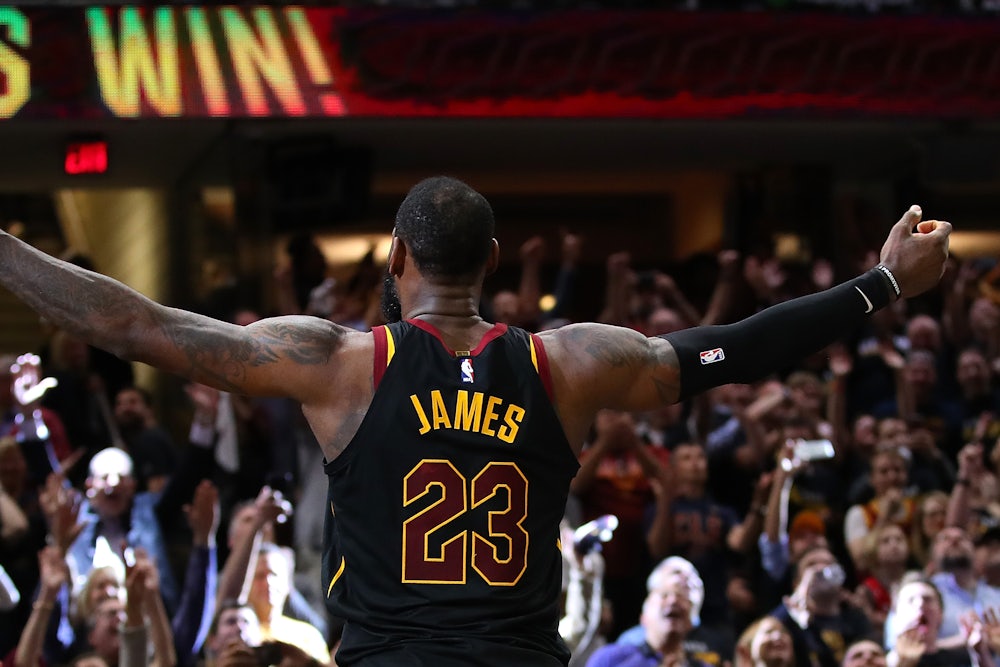James, the greatest basketball player of all time, signed a four-year, $154 million contract with the Los Angeles Lakers on Sunday evening, leaving the Cleveland Cavaliers for the second time in eight years. If there were hard feelings when James left for Miami in 2010, the sentiment amongst Cleveland fans is warmer eight years later, thanks to the NBA championship James brought the city two years ago.
Given just how title-starved Cleveland was—its baseball team last won an MLB title in 1948 and its football team is the Browns—James’s impact on the city was largely cultural. But his absence will also be felt economically.
There is a great deal of debate about the actual economic benefits that professional sports teams bring to local economies. While there is little evidence that new, taxpayer-funded stadiums generate a lift, Daniel Shoag and Stan Veuger of the conservative think tank AEI found evidence earlier this year that James did have an impact on Cleveland itself. Using data from his two stints in Cleveland and four year-term in Miami, Shoag and Veuger found that the number of restaurants and bars close to Cleveland’s Quicken Loans Arena dropped from nearly 200 to under 170 after James left in 2010 and spiked to over 200 after he returned in 2014. In Miami, the number of establishments close to American Airlines Arena rose while James was a member of the Heat, but only dropped off slightly after his departure. According to Shoag and Veuger, James’s presence “increases the number of such establishments within one mile of the stadium by about 13 percent, and employment by about 23.5 percent.”
The lesson? Having James on your roster makes a difference to the local economy no matter what. But it makes a much bigger difference to a city like Cleveland than it does to a city like Miami. Or Los Angeles, for that matter.
